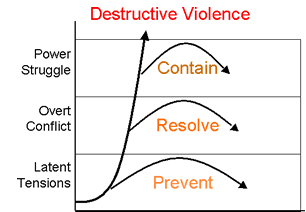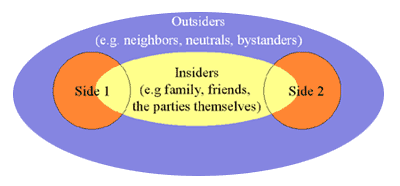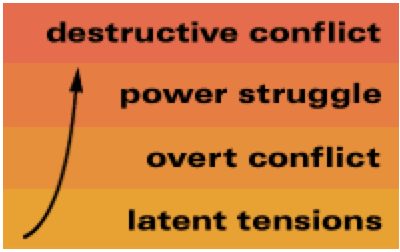The Teacher: Fishing in Sierra Leone
By Phil Bob Hellmich
A trail of dust settled ahead of our rickety Toyota taxi as we chased a pickup truck along a dirt road through the bush of central Sierra Leone. The elephant grass gave way to rice paddies, and we drove slowly through a village as the taxi driver navigated between the chickens. I waved to a mother feeding her baby by one of the huts. She waved back with an enthusiastic smile that helped to assuage my apprehension about what we might find in Masongbo. We were on an assessment trip for Search for Common Ground, hoping to set up a reconciliation program in Sierra Leone. This Sunday morning trip was my opportunity to fulfill every former Peace Corps volunteer’s dream: I was returning to one of the two villages where I had lived between 1985 and 1989. The Catholic bishop of the area had assured us it was safe and volunteered to take us to the Sunday mass in Masongbo, but even he could not dispel my nervousness.
I made many close friends in Sierra Leone, especially the Conteh family in Masongbo village. In 1991, the country erupted into a bloody and chaotic civil war, and I had no way of communicating with the Contehs. During the war, the rebels and the government army both turned against the civilian population, leaving villagers to fend for themselves while they waited for international intervention. The war was marked by horrific atrocities committed against women, children, and elderly alike, including the amputation of limbs and other mutilations. For years, I trembled at each news story about the war. Filled with anger and concern, I worried about the Contehs and my friends in Masongbo.
I first fished on the Rokel River during my second year as a volunteer. That was also the first time I met Pa Conteh and his sons. The Contehs are Limbas, a tribe known for their palm wine, farming, and humility. Even though they were subsistence farmers, the Contehs were gracious hosts, very accommodating of my enthusiasm for fishing. Having come from a family of ten children in rural Indiana, I developed a love for fishing at a young age and spent many days with my brothers at farm ponds, catching bluegills, catfish, and an occasional large-mouth bass. The idea of fishing in Africa was exotic, and the first day out changed my life.
After several hours of getting tangled in nets and on rocks, elderly, soft-spoken Pa Conteh encouraged me to try casting one last time as the African sun sank behind the palm trees. Wham! A huge fish struck the lure and after a 20-minute battle, I realized with joy and amazement that I had landed a 25-pound Nile Perch!
That fish – believe it or not – convinced me to sign up for a third and then a fourth year of Peace Corps service. I moved to Masongbo to live with the Contehs and started fishing nearly every evening during the dry season. The Conteh brothers – Moses, Sanpha and Bokarie -quickly became my close friends. We spent hours telling stories, laughing, and eating together. We got a kick out of sending home fishing photos, knowing how my family in Indiana would gawk at the huge bass-like fish.
But fishing had taken on new meaning as I was helping to supplement the diet of more than thirty people, including the Contehs and their friends, with much needed protein. Fishing also became an ethical quandary when I started losing lures to large fish and jagged stones. I could not afford to buy expensive imported lures with my Peace Corps stipend. Nor could the Contehs. Each lure cost as much as a teacher was paid in a month.
For months I pondered the problem: how could I justify sharing my passion for fishing while introducing a technology that was not sustainable by my friends? The answer was to make them myself. I tried to carve wooden, fish-like lures, but the Contehs quickly took the sticks from me, afraid that I would hurt myself. They carved all their own hand tools and knew the qualities of every tree in the bush. They were willing to help me, but were strangely unenthusiastic. It took me a long time to figure out their uncharacteristic reticence: they were embarrassed by trying to make a “white man’s gadget,” at which they felt they would surely fail.
I made sure that whatever materials we used were locally available. The only place I yielded was letting Sanpha use some of my shoulder-length hair to make paintbrushes. After all, I was easier to catch than a goat. With a lot of back and forth, we eventually made lures that dove and danced in the water, just like the expensive “English baits” or Rapala lures. And, we caught fish. Before long, the Contehs had a small business making and selling lures and giving workshops to other Peace Corps Volunteers and Sierra Leoneans. One day Sanpha caught four Nile Perch, weighing over a hundrred pounds in total, all with lures and a makeshift reel he had made himself.
Now, as our taxi pulled into the village of thirty houses, we could hear the small church rocking with drums, singing, and clapping. I remembered the night I danced under a full moon with the entire village, celebrating Pa Conteh’s funeral. The music and dance reflected the rhythms, the movements of daily life – farming, cooking, and lovemaking – and its joys and sorrows.
After so many years away, my heart pounded. I began to sweat in the heat of the crowded church. Then I spotted Sanpha, clapping and singing. We looked at each other in amazement. His face turned into an ecstatic smile as he threw his arm around me. He pinched me to see if I was real. Then someone tapped me from behind. It was Moses! And Bokarie! All the Conteh brothers were there! We sang and sang together, the same hymns I had sung in church as a kid in Indiana, but now in an African dialect.
After the service, men, women, and children crowded around to greet me: “Mr. Bob, Mr. Bob, you done come back.” Children in tattered clothes handed me mangos, coconuts, or whatever they could offer. The village chief, who had lost weight from lack of food, handed me kola nuts, the symbolic offering of respect: “He who gives kola, gives life.”
The Contehs then took me to the water well, to show me that it was still in use a decade after we’d built it. They also showed me their oil-palm plantation, which they had doubled, from 250 to over 500 trees! I was thrilled to see that the work we had done together continued, a true testament to their work ethic and self-confidence.
The tone shifted, though, as the Conteh brothers showed me around, talking about the Revolutionary United Front (RUF) rebels’ occupation of the village. A 16-year-old boy who called himself “Lt. Colonel Rambo” had held the village captive. They took whatever food they wanted and left little for anyone else to eat. Sanpha said the family nearly starved, surviving only by hiding in the bush for months on end. The Contehs were greatly relieved to have the RUF out of their village and were ready to get back to their lives as subsistence farmers, a life that was hard enough in itself.
Sanpha then pulled me to the side to show me something. With a big smile, he pulled out a stick painted red and white and that had shiny hooks hanging from it. Looking closer, I saw it was a fishing lure. “I made it last week,” he said.
I was stunned. Looking into Sanpha’s eyes, I listened as he said, “The RUF made me fish for them, but I always went to where there were no fish. They got bored and quit. When they were not looking, I went fishing on my own. With the fish I caught, I fed my family in the bush.”
There were no words to be said. You can go home again.
Phil Bob Hellmich is the director of development for Sub-Saharan Africa for Search for Common Ground, an international conflict-resolution organization.




